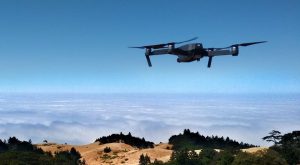Read Time:2 Minute, 46 Second
In the dynamic landscape of manufacturing, the integration of artificial intelligence (AI) technologies has emerged as a game-changer, revolutionizing traditional processes and unlocking a myriad of benefits for businesses. From streamlining operations to enhancing product quality, AI is reshaping the manufacturing industry in profound and impactful ways.
Optimized Production Processes:
One of the primary benefits of AI in manufacturing is its ability to optimize production processes, resulting in increased efficiency and productivity. AI-powered systems analyze vast amounts of data from sensors, machines, and production lines in real-time, enabling manufacturers to identify inefficiencies, minimize downtime, and streamline workflows. By leveraging predictive analytics and machine learning algorithms, AI can anticipate equipment failures, schedule maintenance proactively, and optimize resource allocation, ensuring that manufacturing operations run smoothly and cost-effectively.
Improved Product Quality:
AI technologies play a crucial role in improving product quality and consistency in manufacturing. Machine learning algorithms analyze data from sensors and cameras to detect defects, deviations, and anomalies in real-time, enabling manufacturers to identify quality issues early in the production process. By implementing AI-driven quality control systems, manufacturers can reduce the likelihood of defects, minimize scrap and rework, and ensure that products meet stringent quality standards. Additionally, AI-powered predictive maintenance can help prevent equipment malfunctions that could compromise product quality, further enhancing overall product reliability and customer satisfaction.
Enhanced Supply Chain Management:
AI is also transforming supply chain management in manufacturing, providing unprecedented visibility, agility, and optimization across the entire supply chain. AI-powered predictive analytics forecast demand, identify potential supply chain disruptions, and optimize inventory levels, enabling manufacturers to minimize stockouts, reduce lead times, and improve customer service levels. Additionally, AI-driven logistics optimization algorithms optimize shipping routes, reduce transportation costs, and enhance overall supply chain efficiency, ensuring that products are delivered to customers in a timely and cost-effective manner.
Increased Safety and Sustainability:
AI technologies have the potential to enhance safety and sustainability in manufacturing by identifying and mitigating risks associated with workplace hazards, environmental impacts, and resource usage. AI-driven predictive maintenance systems help identify potential safety hazards and prevent equipment failures that could endanger workers. Furthermore, AI-powered energy management systems optimize energy consumption, reduce waste, and lower carbon emissions, contributing to a more sustainable and environmentally friendly manufacturing process.
Empowering Workforce and Innovation:
Contrary to concerns about job displacement, AI in manufacturing has the potential to empower the workforce and drive innovation. By automating repetitive tasks and freeing up workers to focus on more complex and creative endeavors, AI enables employees to become more productive, engaged, and innovative. Additionally, AI-driven insights and analytics provide valuable intelligence that can inform strategic decision-making, drive continuous improvement, and foster a culture of innovation within manufacturing organizations.
In conclusion, the integration of AI technologies holds immense promise for the manufacturing industry, unlocking a host of benefits that enhance efficiency, quality, sustainability, and innovation. By harnessing the power of AI-driven insights, predictive analytics, and automation, manufacturers can optimize production processes, improve product quality, streamline supply chain management, enhance safety and sustainability, and empower their workforce to drive innovation and competitiveness in the global marketplace. As AI continues to evolve and mature, its transformative impact on manufacturing will only continue to grow, shaping the future of the industry in profound and positive ways.

